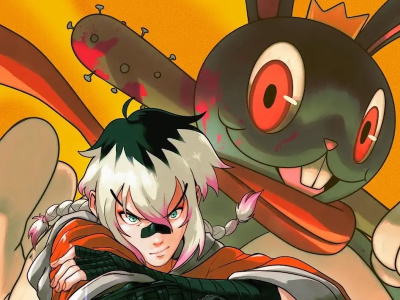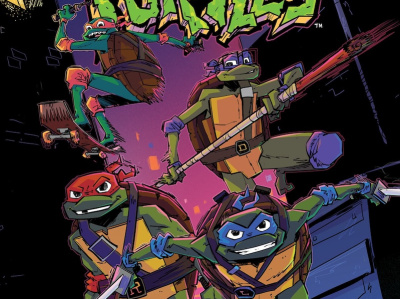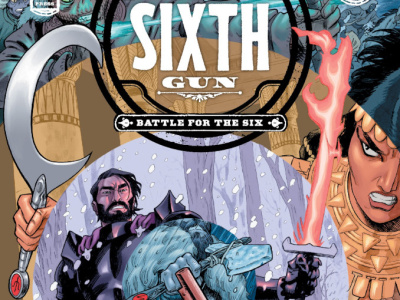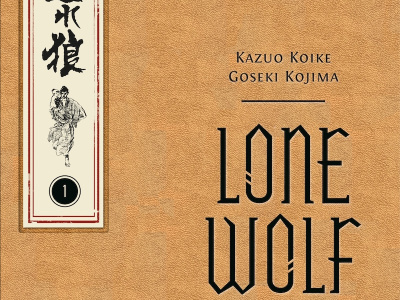 ICv2 caught up with Dark Horse Manga Editor Carl Horn to talk about the North American manga market and Dark Horse’s place in it. In Part 1, we talk about the manga market past and present, and where Dark Horse saw strength in 2013. In Part 2, we talked about selling manga titles that don’t have tie-ins, and went on to Dark Horse’s plans for 2014.
ICv2 caught up with Dark Horse Manga Editor Carl Horn to talk about the North American manga market and Dark Horse’s place in it. In Part 1, we talk about the manga market past and present, and where Dark Horse saw strength in 2013. In Part 2, we talked about selling manga titles that don’t have tie-ins, and went on to Dark Horse’s plans for 2014.What’s your view of the state of the manga market in 2014?
The manga market is bottoming out from the collapse that happened several years back, and I think we’ve been seeing some modest recoveries. We have hard data on that because we’ve been returning more royalties back to the Japanese and those are based on sales.
Dark Horse recently decided to go with our book distribution to Random House, and we have great expectations that that’s going to increase our exposure in manga. We’re looking rather optimistically towards the future.
Just recently we had some guests from a Japanese publishing company. I notice that back around the time of the manga boom ten years ago or so, there was a lot of talk about grand strategies and grand plans and where we’re going to be five or 10 years from now. Manga sales have also gone down in Japan, and there’s more of a sense that people have mellowed down their expectations in realizing that the manga business is a very tactical business: it’s done on a book-to-book basis. How can we best sell this book? How can we best license this book? It’s very difficult to say when we’re going to release a whole line of things and we’re going to change the industry. I don’t think it’s that easy.
This is going back to the way manga was before the boom. The cool thing about manga is that it’s been around for so long. The industry started here in 1987 (publishing on a regular basis). It’s shown that it can endure under regular conditions, under boom conditions, under contractions, and I think we’re going back to a regular state again. It doesn’t mean, however, that we’ve gone back to square one. Because one of the things we’ve achieved is that you have an entire generation of people in America who’ve grown up knowing what manga is. They don’t necessarily read it all the time; they may not have any in their personal collection; but you’ve established what this medium is all about.
You don’t need to do as much explaining as you used to [or about] the types of manga. That’s one of the things the boom did was introduce things like shojo and so forth, so it’s greatly expanded people’s understanding of it. You can’t simply put a manga on the market and expect it to sell because it is manga (that was one of the nice things about the boom because you could take a chance on more marginal titles), but on the other hand you don’t have to do as much explaining about what manga is anymore.
We are proceeding as we have for some time, which is that we make our decisions about releasing manga based on individual creators, individual books. It’s a title by title thing. It’s not at all different from the type of reasoning we use when we release our comics. When we release our comics we want to know what’s this going to be about? Who’s our creative team? So we’re really asking the same questions.
Could you briefly talk about the reasons for the boom and decline?
The idea of the inexpensive pocket book sized manga was something that was first introduced by Dark Horse. That’s something we did back in 2000 with Lone Wolf and Cub. The idea of the $9.95 manga. It was really done on a big scale by Tokyopop, a company which was almost synonymous with manga for a while in the 2000s. They worked with Borders and were able to get manga tremendous exposure in the stores. One of their innovations was to release manga unflopped. Between 1987 and 2002, the standard had been to flop or reverse all manga so it could be read the western way. Part of the reason for that is that during the first 15 years or so, manga were sold mainly as a subset of the U.S. comics market. Obviously not every U.S. comics fan would go for manga, but there was a certain subset of them that were open minded about it, especially when manga was increasingly influencing things like Image comics.
So not only was it read western style, but also manga used to be released in comic book format. You would have one chapter a month coming out as a comic book and only later would it be collected into a graphic novel, the way most graphic novels are released in the U.S. today.
What Tokyopop was doing was skipping the comic book phase and going directly to graphic novels and again, putting all of its emphasis in the book stores. It was a bit of a gamble. There was no guarantee that people would be willing to accept these manga straight-to-graphic novel and reading Japanese style, but it paid off. It created a tremendous boom for anything that was either Japanese or anything that looked like manga or claimed to be manga.
During the boom years you didn’t just have actual manga in the stores; in addition to that people were putting in books from other East Asian countries, they were putting in western books that claimed to be in manga style, or they called them original English language manga. As you might guess, not all manga are going to be good either and the addition of all of these titles as well contributed to a big glut and a collapse.
That’s the nature of booms; all booms eventually go bust. And one of the factors behind it was Borders closing down.
Most of the decline happened before Borders shut down.
It also prevented the possibility of a recovery because you’re losing all those venues. Today the bookstore market is still extremely important, and Barnes & Noble is a major source for our sales.
The boom raised the exposure of manga, but it also created unrealistic expectations that this sort of thing is going to last forever and that this is now going to be a permanent fixture on the American pop cultural scene.
Manga sales were never that huge as a total percentage of American bookselling. The reason they created so much excitement, of course, is because they were going up so rapidly and that’s what happens in a lot of booms. It’s not necessarily that the absolute numbers are so huge on everything, it’s just they’re going up so quickly. There’s such excitement in the market. So everybody wanted to get into that sector. But there’s something to be said for taking the long-term approach and realizing, if you’re a publisher you’re going to have to be a publisher in good times as well as lean. In many ways we’re getting back to normal times.
My personal view about manga is that, with our comic books, we think first about the North American readership. They’re created in English language; the first people we think about are North American readers. Obviously our comics get translated into many languages, but that’s the target.
When it comes to manga in Japan, their first target, their readership is Japanese. So manga come over here and they’re on an import basis. It’s always going to be difficult for that reason, the same reason it’s difficult to bring a Japanese movie to American theaters and expect everybody to go see it. Whereas if you remade it with an American cast and directed it toward Americans, you’d probably get a larger audience. Now it’s no longer the Japanese movie; it’s no longer authentic; I’m just saying there are challenges in trying to take a product that is specifically designed for a different market and then trying to sell it in a foreign market.
So you’re saying it’s a limiting factor.
It’s a limiting factor, but it’s a double-edged sword. It’s the strength of it as well. Because manga is not designed for Americans, they’re full of ideas which often seem innovative, and tones that you can’t necessarily get from American work. Not just crazy, wild things, but also subtleties. I think manga can provide emotional moods and shading that you simply are not going to get from American comics. It is not done here for the most part.
Manga are not just narrative experiences; they’re not just conceptual experiences; they’re also emotional experience. I don’t necessarily mean deep, racking emotion; they’re like an emotional flavor that you don’t necessarily get from comics.
What is Dark Horse’s output in manga? How many manga releases did you put out last year?
We did 55.
What were your top sellers last year?
In terms of sales success, Evangelion and Gantz continue to be good sellers.
We should definitely mention Oreimo. With this title, we also did something we never did before with a manga; had an advance sales event at a convention, where you could buy it at our table a few days before it hit the stores. We were inspired to do so by FUNimation, who sometimes does this with their anime DVDs (and with whom we work to promote titles like Evangelion, for which they have the anime license).
A pleasing success was our most recent Neon Genesis Evangelion series, The Shinji Ikari Detective Diary. What's so interesting about this is that Detective Diary was created for a shojo magazine, even though Evangelion is not a shojo series. It shows how you can take an established property and do something interesting with a style that targets a different demographic.
Finally, we reprinted all volumes of Berserk last year, attesting to the continuing appeal of this long-running series.
Something that needs to be understood about Dark Horse manga is that we’re probably the oldest manga company in the U.S., and the largest manga company that doesn’t specialize in manga. That always makes us different from other companies that do. Manga is about 10% of what we do. This goes back to the idea that we release manga very much on a title by title basis.
Our biggest Japanese sellers last year weren’t manga per se, they were The Legend of Zelda: High Rule Historia and The Sky: The Art of Final Fantasy. As an editor, I work not just on manga, but also on Japanese art books and Japanese novels so I was editor on The Sky. A lot of my attention was put toward that.
Fans don’t necessarily make big distinctions between Japanese manga, Japanese art books and Japanese novels. If they’re into Japanese creators, they tend to like all of those formats. In a more broad sense we look toward good Japanese titles regardless of what format they’re in. In other words, don’t think just about manga, per se.
Click here for Part 2.







